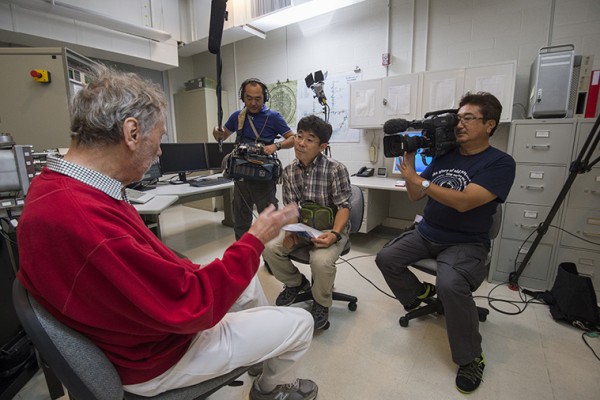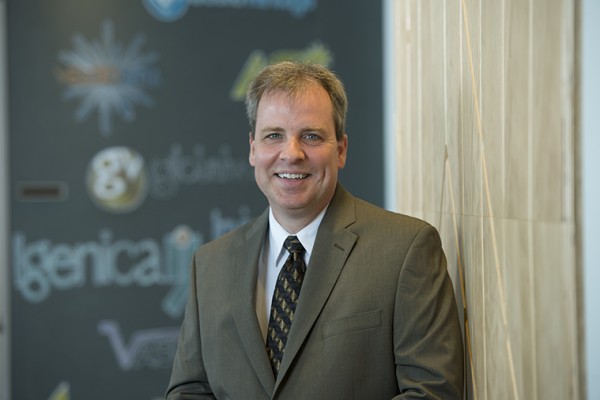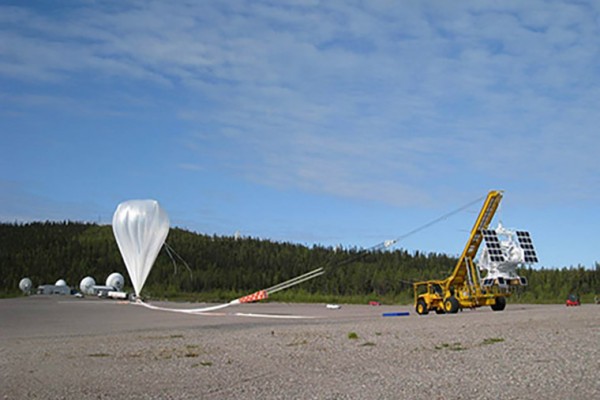Winning by losing: School of Engineering scientists find a way to improve laser performance
Scientists from the School of Engineering & Applied
Science at Washington University in St. Louis have shown a new way to
reverse or eliminate energy loss in optical systems such as lasers. They are doing so by, ironically, adding loss to a laser
system to actually reap energy gains. In other words, they’ve invented a
way to win by losing.
The dwindling stock of antibiotics, and what to do about it
Pharmaceutical companies have largely abandoned the business of discovering and developing antibiotics and our stock of these “miracle drugs” is beginning to shrink. Michael Kinch and his colleagues at Washington University in St. Louis are working to create new models for drug discovery that could replace the failed private enterprise model.
Washington University alum shares Nobel Prize in chemistry
Washington University in St. Louis alumnus W. E. Moerner, PhD, has been awarded the Nobel Prize in chemistry. Moerner shares the award, announced Oct. 8 by the Royal Swedish Academy of Sciences, with Eric Betzig, PhD, of the Howard Hughes Medical Institute, and Stefan W. Hell, PhD, of the Max Planck Institute for Biophysical Chemistry, in Germany. The trio received the award for developing super-resolved fluorescence microscopy.
Wang receives prestigious NIH BRAIN initiative award
Lihong Wang, PhD, the Gene K. Beare Distinguished
Professor of Biomedical Engineering in the School of Engineering &
Applied Science at Washington University in St. Louis, has received a
prestigious BRAIN Initiative Award from the National Institutes of
Health (NIH). Wang’s three-year, $2.7 million award, is one of 58 grants totaling $46 million announced Sept. 30 by Francis S. Collins, MD, PhD, director of the NIH, in Washington, D.C.
Japanese film crew talks stardust with physicists
A film crew from NHK, the Japan Broadcasting Corp., visited the Danforth Campus of Washington University in St. Louis last week to film for a series called “Cosmic Front HOTLINK” about the wonders of the universe. Here, they interview Ernst Zinner, PhD, research professor of physics in Arts & Sciences. He pioneered techniques to study tiny bits of matter from stars that died before the solar system was born.
‘The process by which drugs are discovered and developed will be fundamentally different in the future’
Over the past several decades, Michael Kinch of Washington University in St. Louis says, the pharmaceutical industry has managed to dismantle itself. In a provocative series of articles and interviews, Kinch, the director of the Center for Research Innovation in Businessat the university, has been describing the history of this dismantling and its implications for the future of medicine.
Camera developed at Washington University sheds light on mate choice of swordtail fish
A group of researchers have used a special camera developed by Viktor Gruev, PhD, associate professor of computer science and engineering at Washington University in St. Louis, to discover that female northern swordtail fish choose their mates based on a display that is similar to a peacock showing its feathers.
Aiming for the stars
Early in September, the X-Calibur mission, preparing for launch at the Columbia Scientific Balloon Facility in Fort Sumner, N.M., put its pointing system through its paces to make sure all of its parts were working in programmed harmony.
Engineers develop new sensor to detect tiny individual nanoparticles
A team of researchers at Washington University in St. Louis, led by Lan Yang, PhD, the Das Family Career Development Associate Professor in Electrical & Systems Engineering, and their collaborators at Tsinghua University in China have developed a new sensor that can detect and count nanoparticles, at sizes as small as 10 nanometers, one at a time. The researchers say the sensor could potentially detect much smaller particles, viruses and small molecules.
Balloon rise over Fort Sumner
In a few days, a balloon-borne telescope sensitive to the polarization of high-energy “hard” X rays will ascend to the edge of the atmosphere above Fort Sumner, N.M., to stare fixedly at black holes and other exotic astronomical objects. It will be carried aloft by a stratospheric balloon that will expand to a sphere large enough to hold a 747 jetliner the float height of 120,000 feet, three times the height at which commercial aircraft fly and on the edge of Earth’s atmosphere. Launching the balloon is not child’s play.
Older Stories




